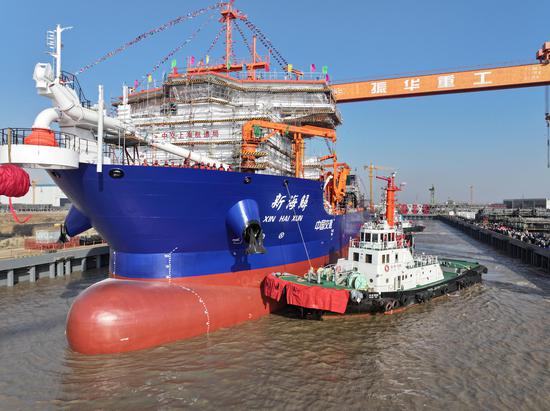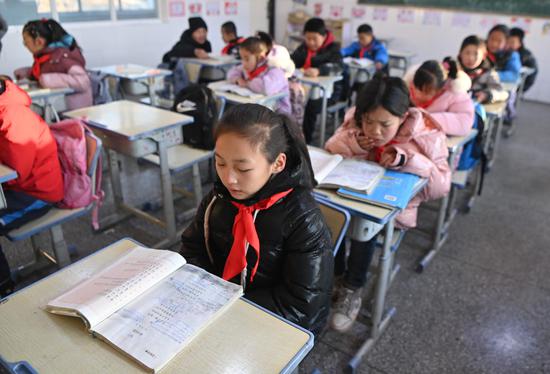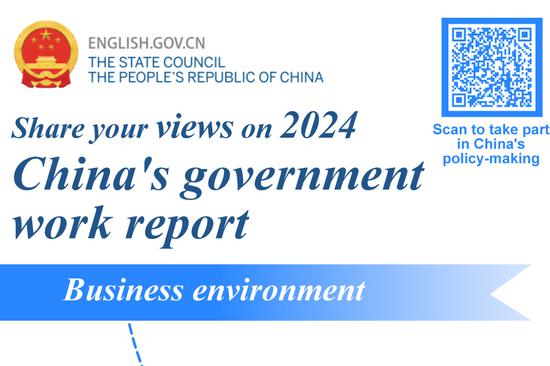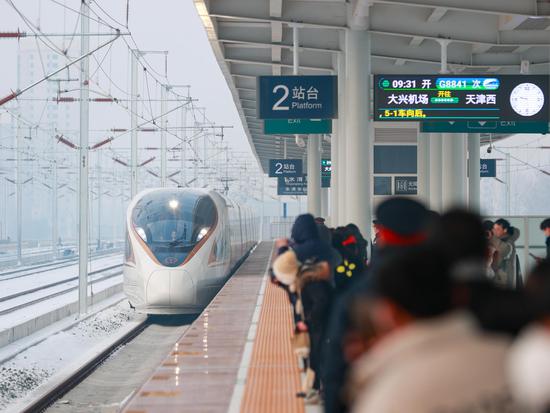
A shopper pays via her mobile phone at a supermarket in Urumqi, capital of the Xinjiang Uygur autonomous region. (CHINA DAILY)
China's new rules for the nonbanking payments sector make it clear that foreign-invested payment institutions are eligible for national treatment amid enhanced regulatory oversight, a move that has boosted foreign players' confidence, officials and experts said.
Zhang Qingsong, deputy governor of the People's Bank of China, the country's central bank, said at a news conference on Thursday that the rules regarding supervision and management of nonbanking payment institutions grant national treatment to foreign peers in the sector to promote high-standard opening-up.
"We equally emphasize 'bringing in' and 'going global', which will help further enhance the efficiency of domestic and cross-border capital circulation and improve the standards of payment services for new business forms, such as cross-border e-commerce," Zhang said.
National treatment refers to a principle wherein a country treats foreign companies the same way it treats its own companies. Nonbanking payment institutions are companies offering payment services, but are themselves not banks, such as Alipay.
The State Council, China's Cabinet, published a set of rules for the supervision and management of nonbanking payment institutions on Dec 17, which will come into force on May 1.
The rules stipulate that overseas nonbanking institutions that intend to provide cross-border payment services to domestic users shall establish nonbanking payment institutions within the country in accordance with the rules, unless stipulated otherwise by the government.
Marking the first set of administrative rules in the financial sector introduced following the recent Central Financial Work Conference, they represent a milestone in promoting high-quality development in the payments industry, Zhang said.
Specifically, he said the rules stress ensuring fair industry competition through equitable regulation, upholding the principle that payment institutions must be licensed to operate in China and effectively preventing risks such as the misappropriation of funds and data leakage.
Zhang added that the rules will help improve the quality and efficiency of payment services by clarifying that nonbanking payment institutions should be positioned as providing small-value and convenience-oriented payment services.
At present, international payment institutions PayPal and Airwallex have obtained online payment licenses in China, while Thunes is reportedly applying for one.
Chen Keyan, vice-president of Airwallex in China, said the move further clarifies licensing requirements of cross-border payments, reflecting the country's commitment to advancing high-standard financial opening-up while adhering to the bottom line of risk prevention and bringing all financial activities under regulatory oversight.
It provides greater confidence to law-abiding practitioners and contributes to high-quality development of the industry, Chen said.
Qiu Han, senior vice-president and China CEO of international online payment company PayPal, said the decision will help establish a long-term and stable market environment.
Qiu said the company maintains its long-term commitment to the Chinese market and will contribute to the high-quality development of cross-border trade.
Nonbanking payment services have experienced rapid growth in China with the rise of the digital economy and e-commerce. Payment institutions handle more than 1 trillion transactions worth nearly 400 trillion yuan ($56.3 trillion) per year, accounting for approximately 80 percent of the country's total volume of electronic payments and 10 percent of the total value, official data showed.


















































 京公网安备 11010202009201号
京公网安备 11010202009201号